Mars InSight Photos: A Timeline to Landing on the Red Planet
Get the world’s most fascinating discoveries delivered straight to your inbox.
You are now subscribed
Your newsletter sign-up was successful
Want to add more newsletters?
Join the club
Get full access to premium articles, exclusive features and a growing list of member rewards.
Lift-Off
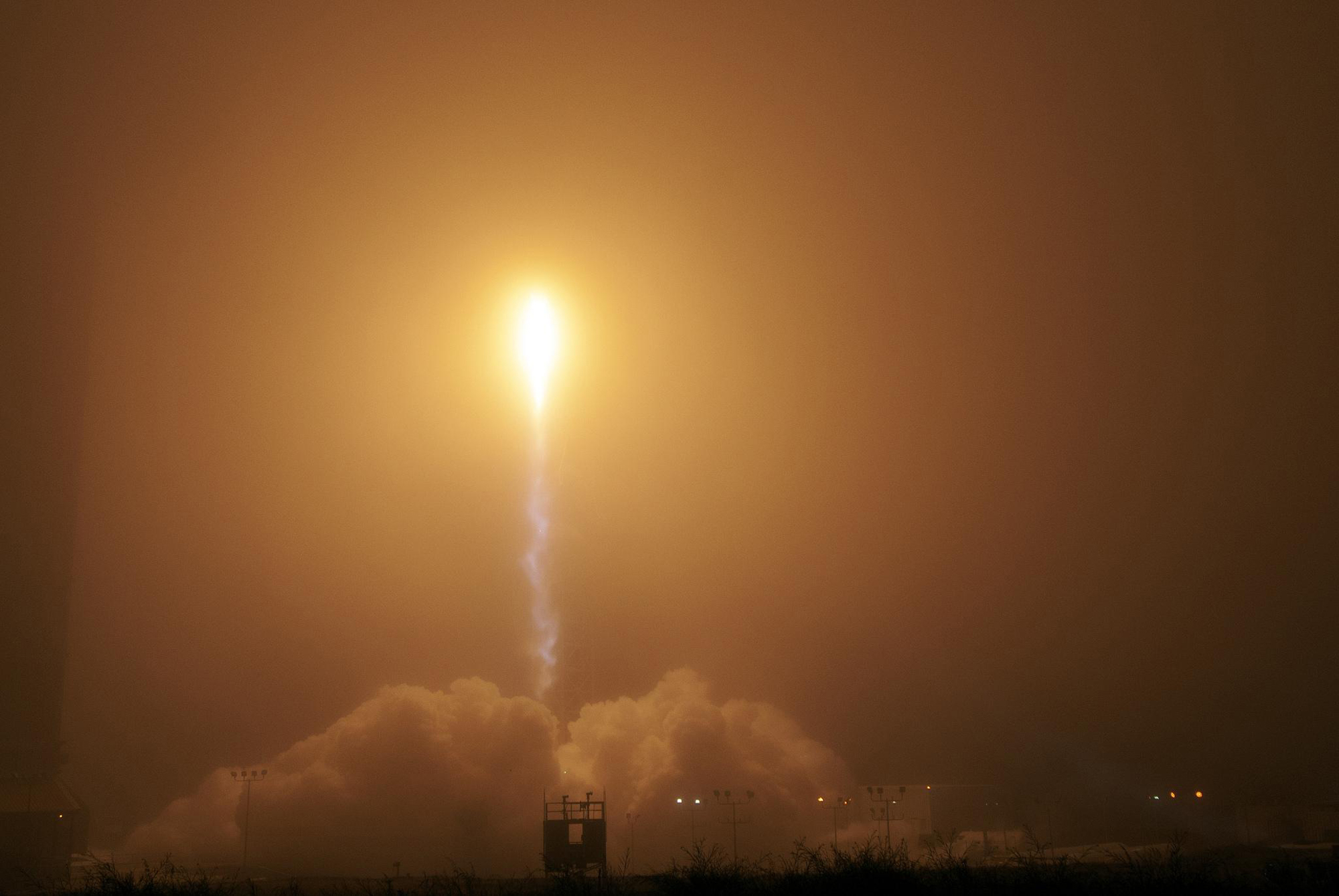
The InSight lander lifts off aboard a United Launch Alliance Atlas V rocket from Space Launch Complex 3 at Vandenberg Air Force Base, California, on May 5, 2018, at 4:05 a.m. PDT (7:05 a.m. EDT).
Sky trail
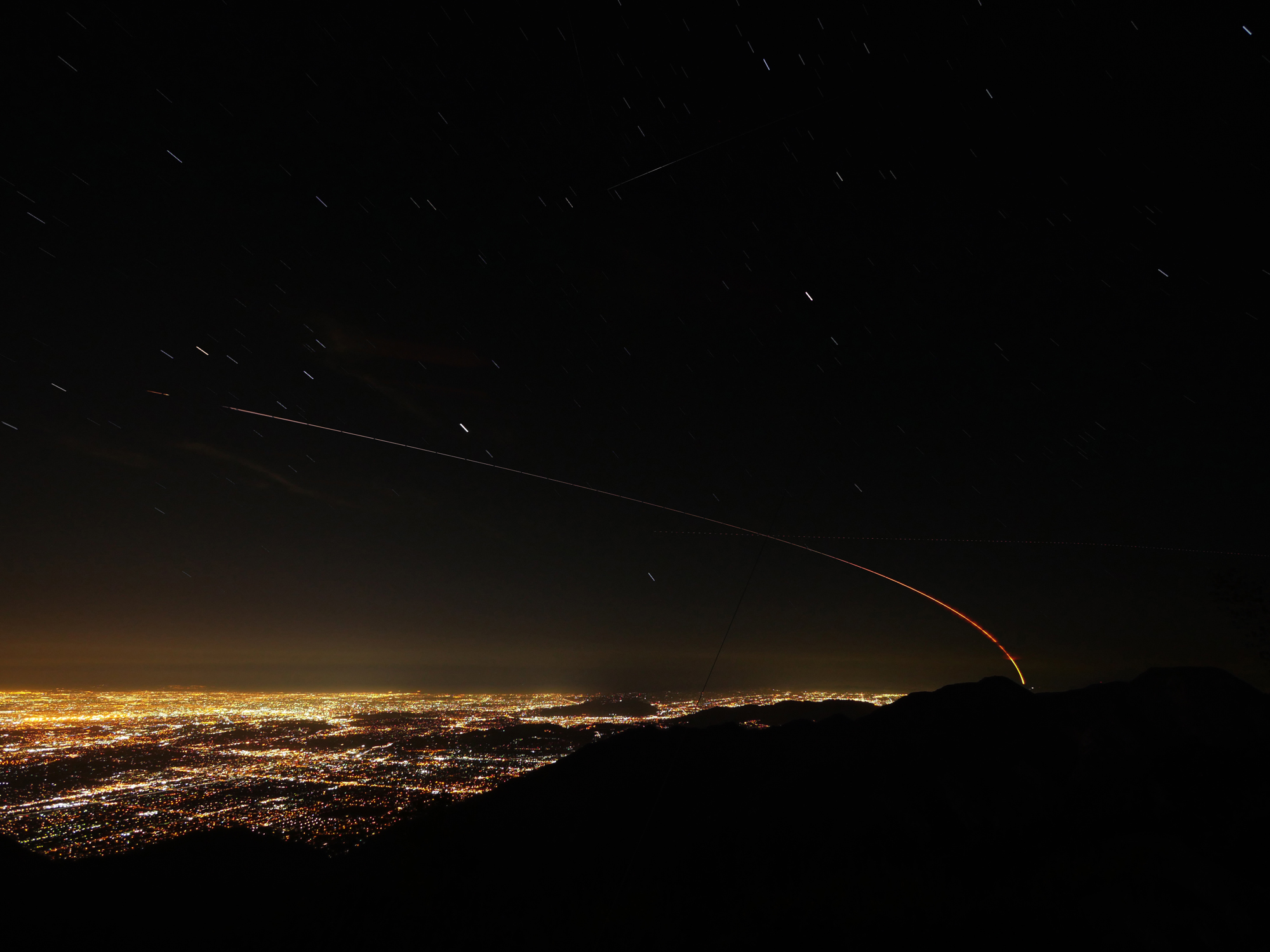
This image shows the trail of NASA’s Mars InSight lander over the Los Angeles area after launching from Vandenberg Air Force Base in Central California on May 5, 2018. This is a stack of exposures taken from Mt. Wilson.
Meticulous navigation
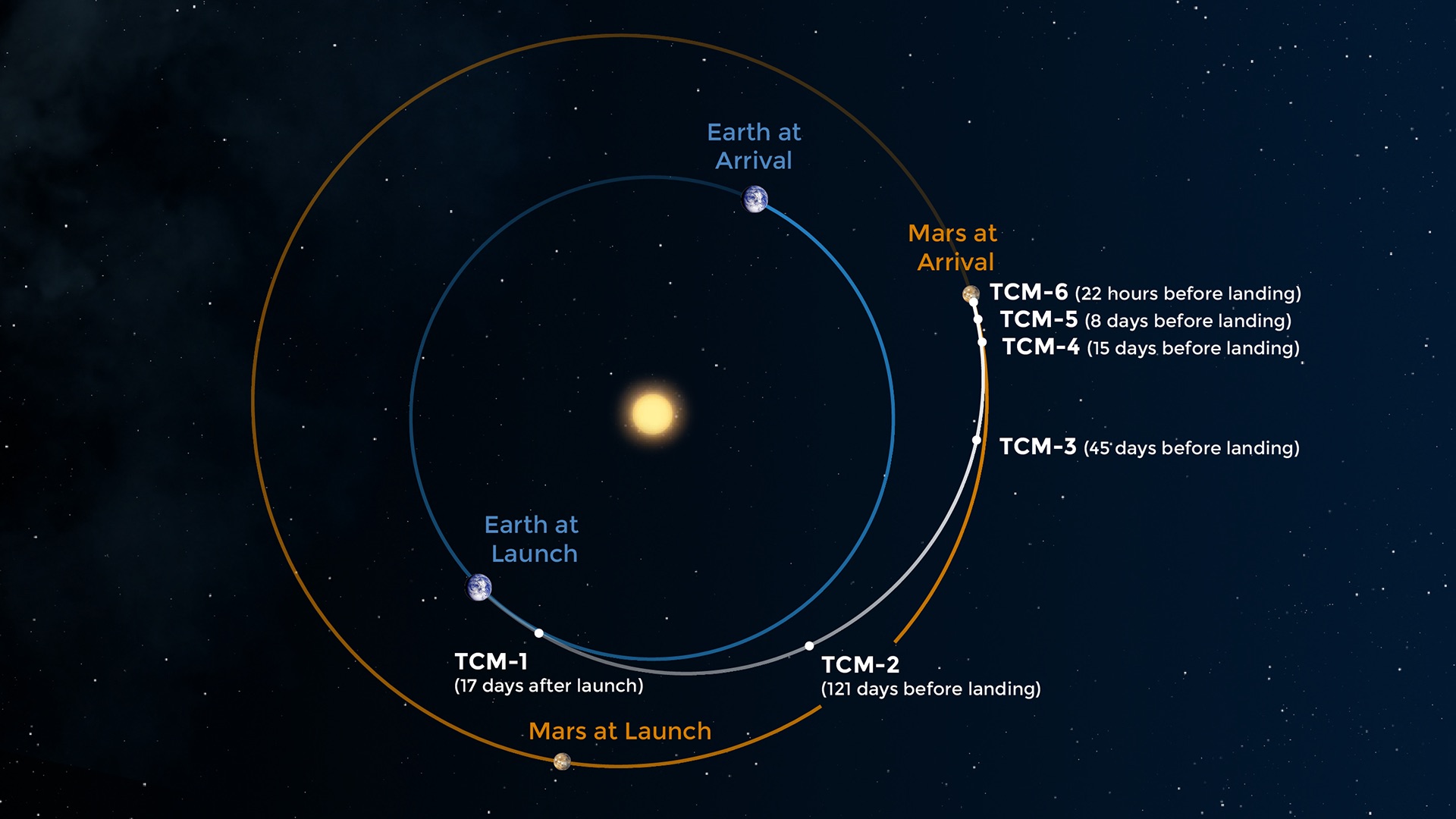
This illustration shows the route InSight took to get to Mars. InSight traveled less than halfway around the sun before reaching Mars. After the lander left the rocket's protective fairing, mission navigators pointed the lander toward Mars, and then ensured that it traveled to the right point above the Martian atmosphere for landing.
MarCo
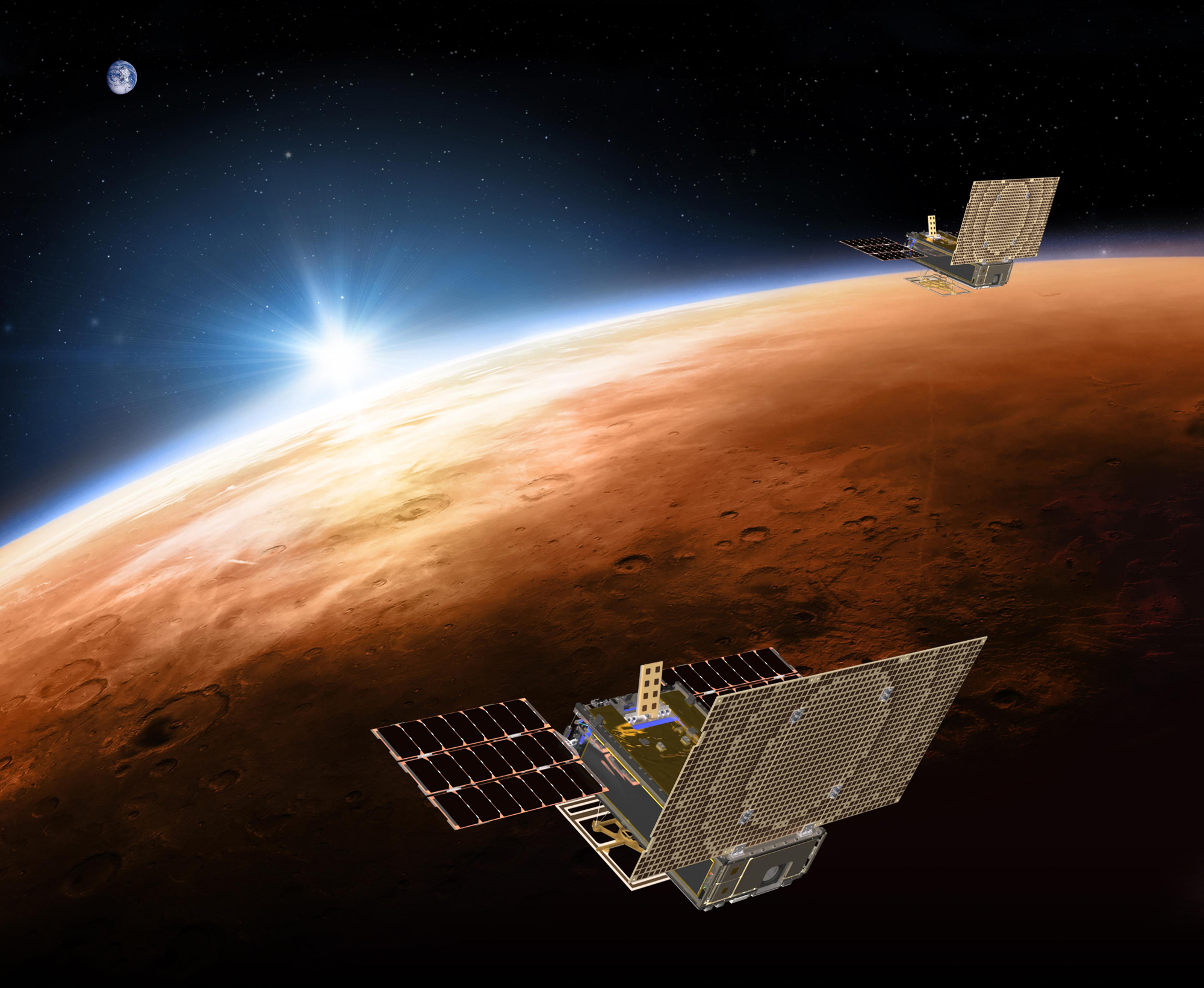
The twin MarCOs, shown here in an artist's rendering, will transmit information to Earth about the landing of InSight. They are shown here flying over Mars with Earth in the distance. The twin MarCos will be the first CubeSats flown in deep space, according to NASA.
Selfie
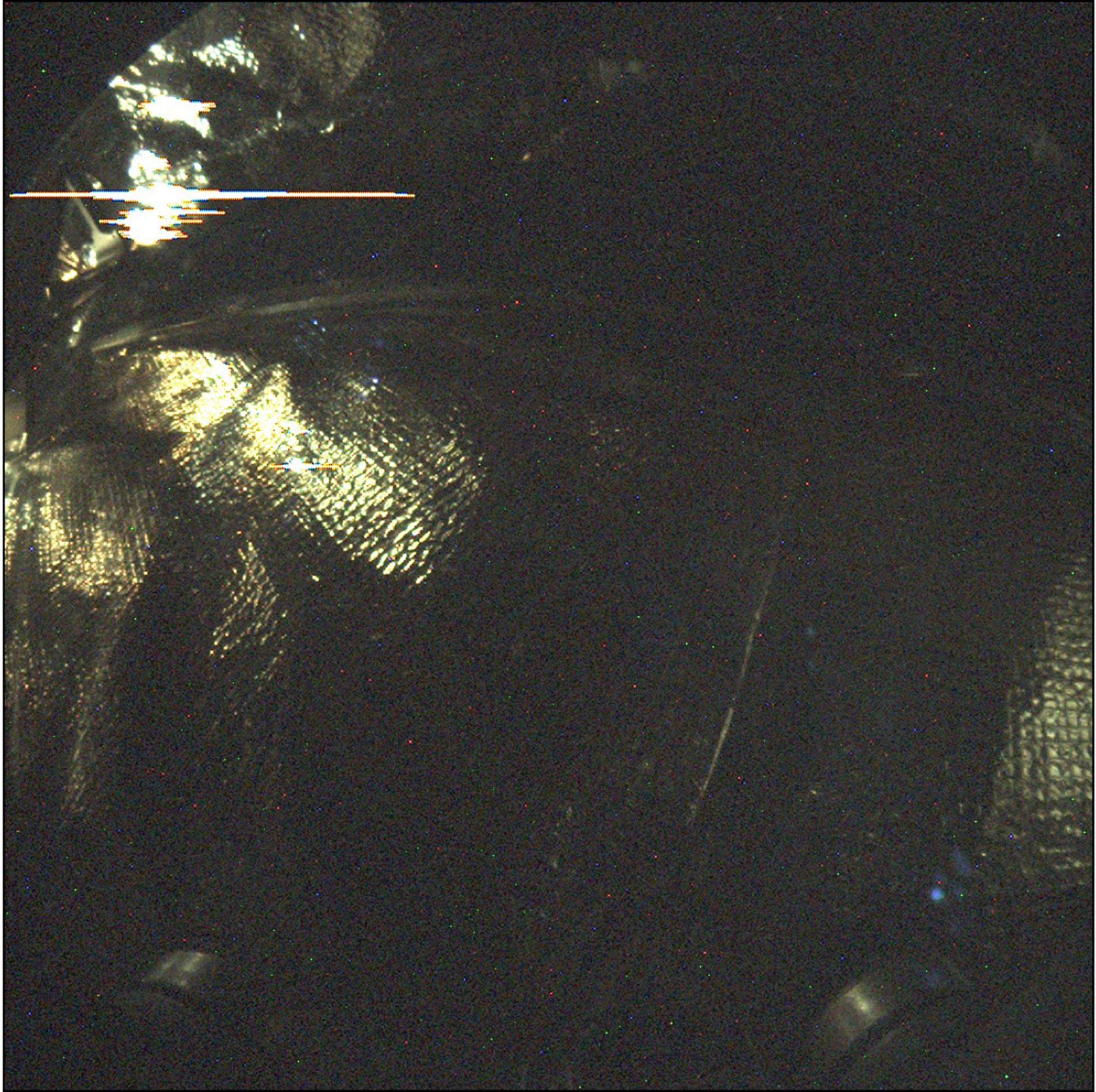
This long-exposure image, taken over 24 seconds, was captured by Instrument Context Camera of NASA's InSight Mars lander. The image shows some of the interior features of the backshell that encapsulates the spacecraft. The backshell carries the parachute and several components used during later stages of entry, descent, and landing. Along with the heat shield, the backshell protects NASA's InSight Mars lander during its commute to and entry into the Martian atmosphere.
Dusty landing
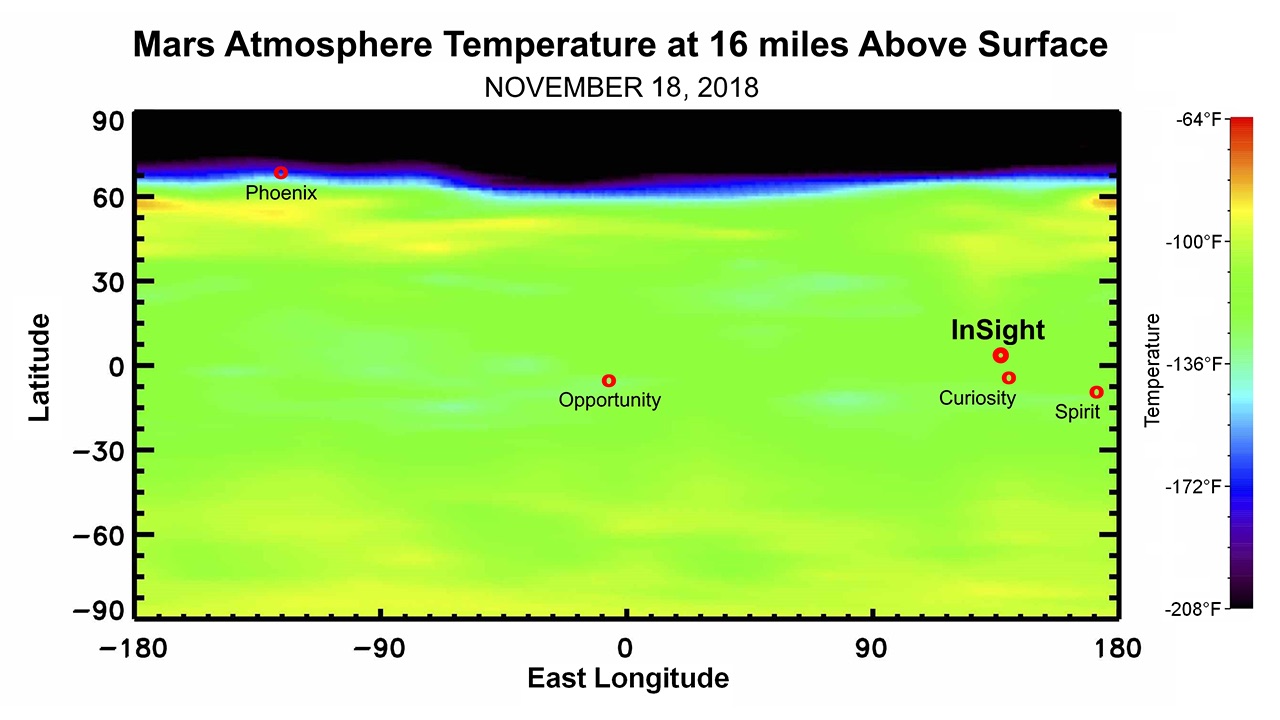
This map shows the temperature of the Martian atmosphere 16 miles (26 km) above the surface. This temperature tells scientists the amount of dust activity in the atmosphere. NASA's Mars Reconnaissance Orbiter collected the information on Nov. 18, 2018, about a week before InSight was scheduled to touch down on the Martian surface.
Martian cruise
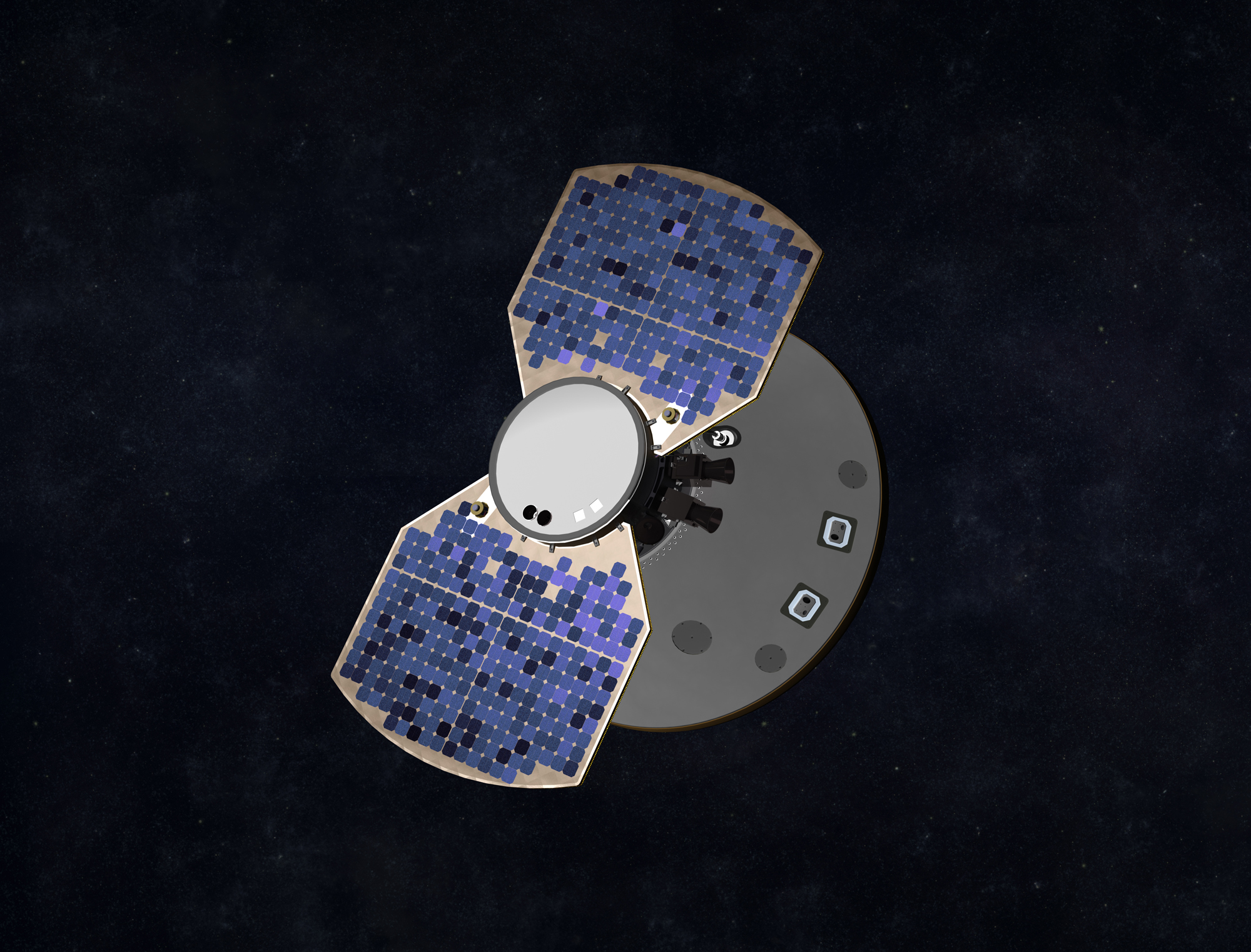
This artist's concept shows the InSight spacecraft, encapsulated in its aeroshell, as it cruises to Mars.
Get the world’s most fascinating discoveries delivered straight to your inbox.
6 minutes of terror
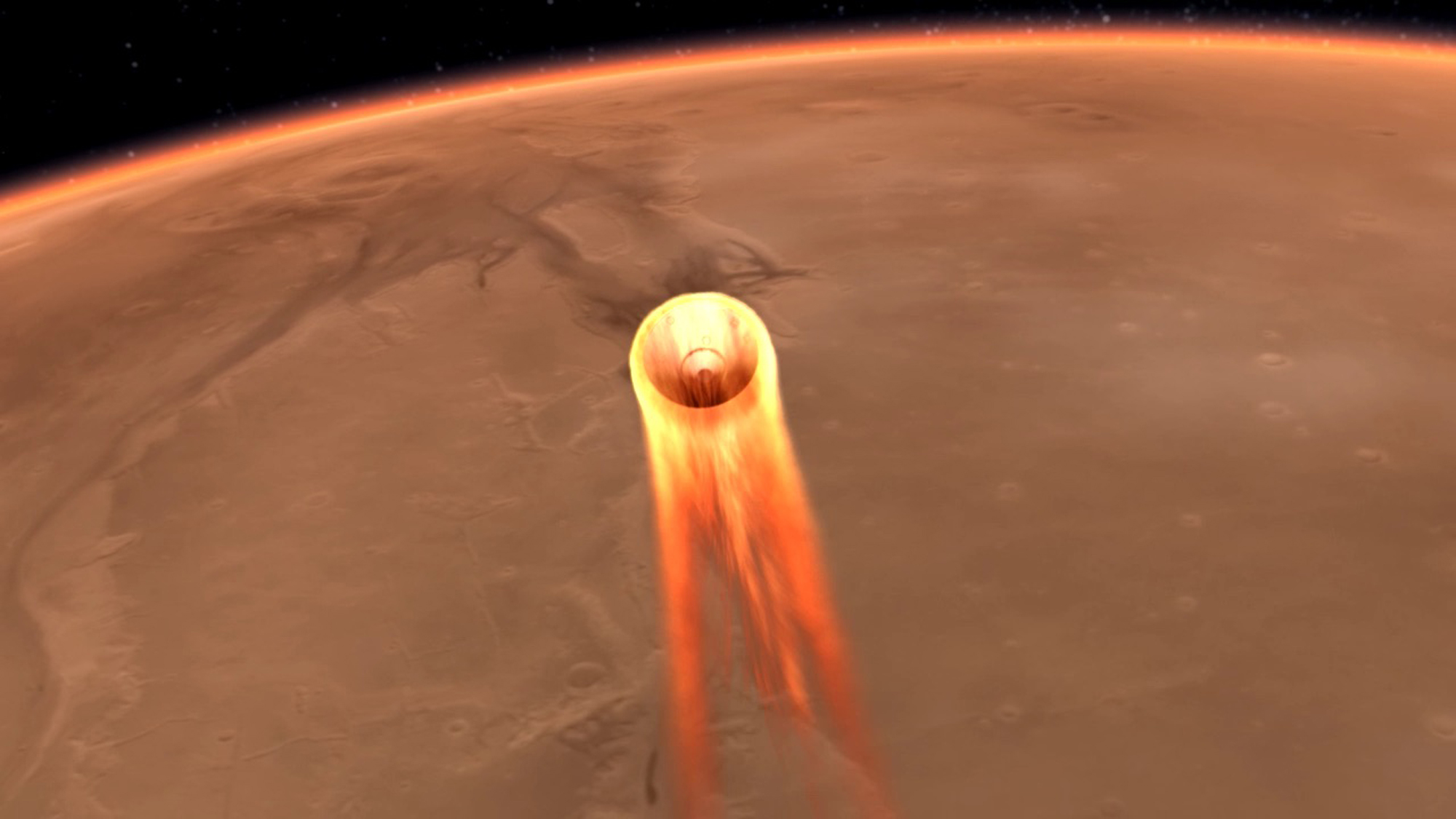
"InSight's descent will be an especially nerve-wracking nail-biter for NASA: Mission control won't have any idea what's happening to the spacecraft in real time, due to the minutes-long delay in the craft's transmission signal," Live Science reported.
Parachute descent
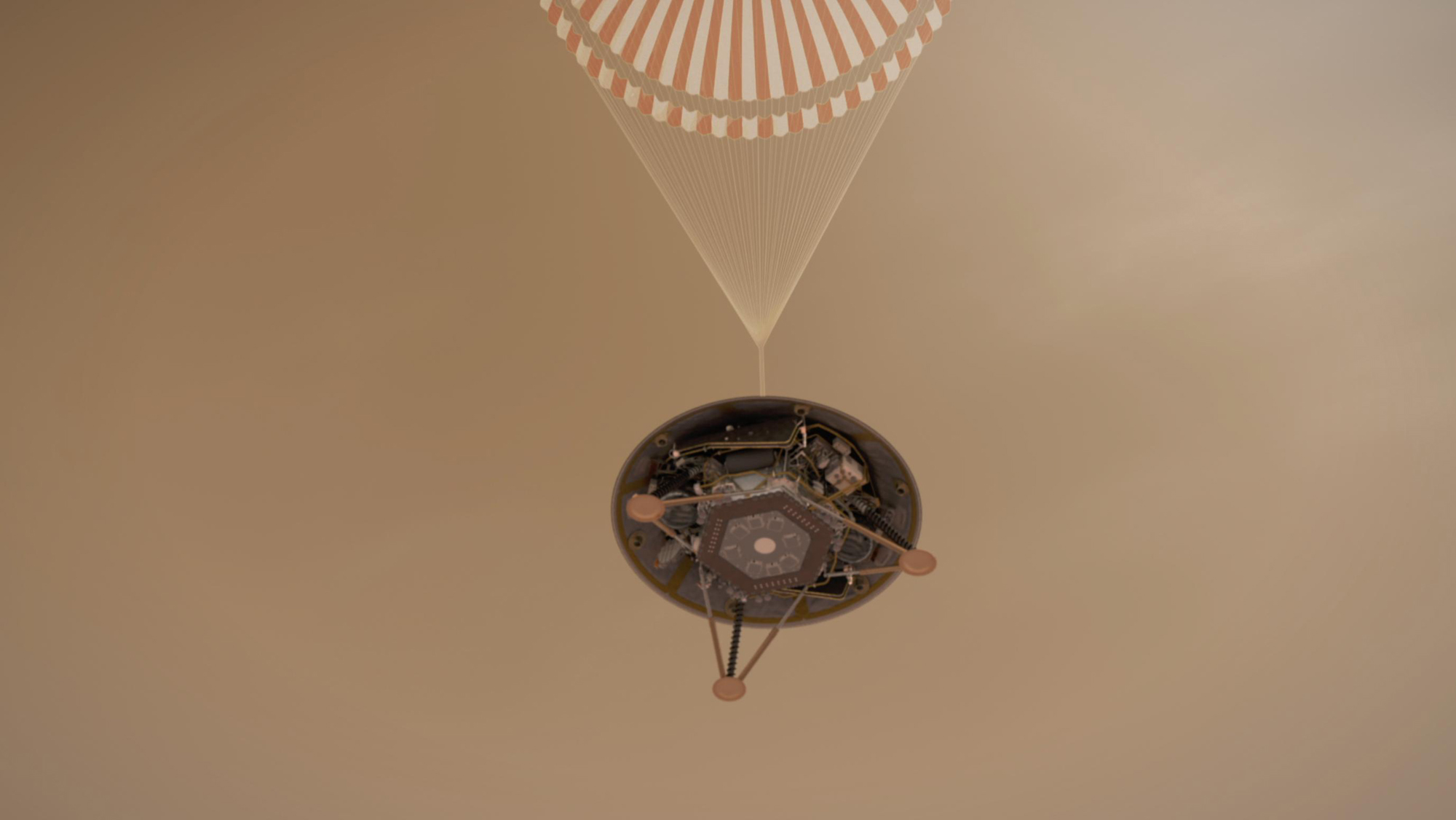
This illustration shows a simulated view of NASA's InSight lander descending toward the surface of Mars on its parachute.
Retro-rockets
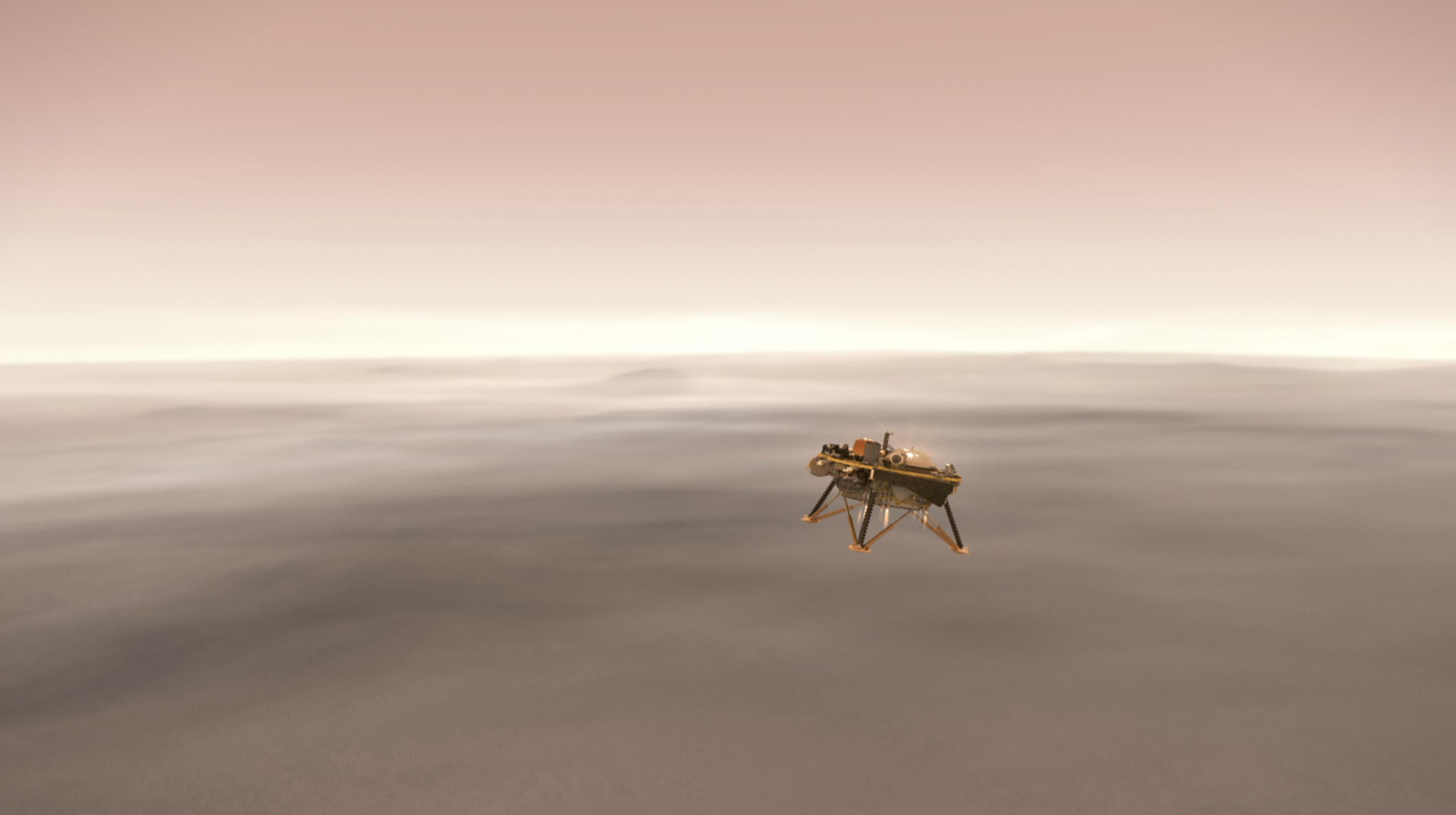
In this simulated view, NASA's InSight lander fires retrorockets to slow down as it descends toward the surface of Mars.
Jeanna Bryner is managing editor of Scientific American. Previously she was editor in chief of Live Science and, prior to that, an editor at Scholastic's Science World magazine. Bryner has an English degree from Salisbury University, a master's degree in biogeochemistry and environmental sciences from the University of Maryland and a graduate science journalism degree from New York University. She has worked as a biologist in Florida, where she monitored wetlands and did field surveys for endangered species, including the gorgeous Florida Scrub Jay. She also received an ocean sciences journalism fellowship from the Woods Hole Oceanographic Institution. She is a firm believer that science is for everyone and that just about everything can be viewed through the lens of science.
 Live Science Plus
Live Science Plus










